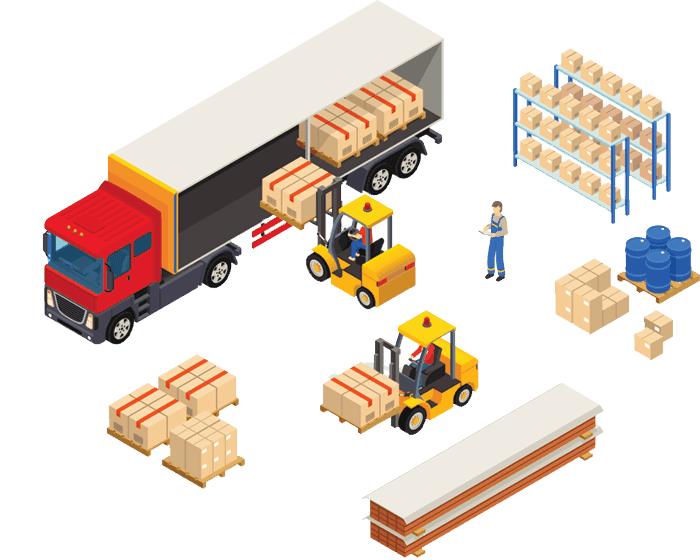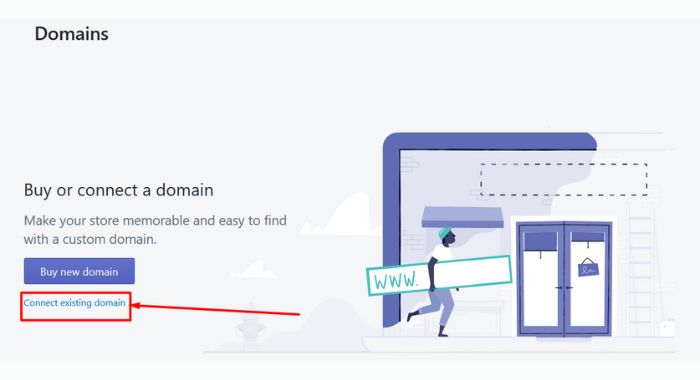15+ Current Challenges of eCommerce In Nigeria and How to Avoid Them
Today we’ll be discussing the major challenges of eCommerce in Nigeria and the possible way to avoid them.
As Bill Gates once said, “If your business is not on the internet, you might as well soon be out of business.”
The same can be said in Nigeria because we’ve experienced a drastic explode in the growth of e-commerce over the past few years.
We can say there’s been a change in the economy of the country and a general increase in the standard of living.
Gone are the days when it takes millions to start a lucrative e-commerce business! This time around, all it takes is a detailed plan and a few startup capitals.
However, the drawbacks the challenges of e-commerce in Nigeria poses to average Nigerians are blocking most people from it through potentials.
In this post, I’ll list the major setbacks of e-commerce and the possible way to overcome them in Nigeria and other neighbouring countries.
Challenges of Ecommerce in Nigeria
#1: The Right Product to Sell
Finding the right products to sell is still one of the major setbacks to e-commerce. Most people believe there’s only a certain type of products that can be sold online.
Ecommerce is the execution of commercial transactions electronically with the help of the leading technologies such as Electronic Data Interchange (EDI) and Electronic Funds Transfer (EFT).
This invariably gave an opportunity for users to exchange business information and do electronic transactions online.
What this means is that you can possibly sell anything online. And the term “buying and selling” online means e-commerce.
Solution:
Look for a product niche you’re passionate about and build an e-commerce website around it and made your presence known on the internet.
This could be digital products or physical products. Whichever you decided to go with, make sure you do your research about the product to be sure it what people want.
Most importantly, a product that solves a pressing need or problem in people lives or in the country as a whole.
#2: Finding the Right Customers
Most people actually want to start an e-commerce business in Nigeria but do not know how to locate the right customers for their business.
Online shoppers don’t shop the same way as they used to. They ask for recommendations on Social Media and equally buy on Impulse.
Solution:
A lot has changed and currently changing however, a good rule of thumb is to know the reason you choose the product you choose to sell.
If you understand your product, you’ll be able to determine the kind of people that needs your products, which is the first step in locating your customer.
It always easy to find someone you already know, and having known them means you can easily take the product to them via adverts or any other means.
#3: Generating Traffics
Generating traffic is a huge problem to most people doing online business. It’s one step building your website and another is generating traffic.
Online marketing is evolving and you can’t rely on one source of traffic to your website like the popular social media.
Solution:
As an internet marketer you must be willing to leverage SEO Marketing, PPC, email, social, display ads, retargeting, mobile, shopping engines and affiliates to help drive qualified traffic to their online store.
All your products must be visible where their audience is paying attention
#4: Cybercrimes
Cybercrime is one of the trending challenges of e-commerce in Nigeria and the sole reason online businesses are tagged as scams in Nigeria.
These crimes cut across several areas online and can be done anytime, anywhere and anyway and the rate at which it’s increasing is alarming.
Average Nigerian won’t prefer to pay for service online before they receive their value or product which is drastically affecting e-commerce as a whole in Nigeria.
Solution:
One of the few ways to avoid this before it start affecting your business and reputation is to make use of payment on delivery.
This is particularly for those selling physical products.
For those selling digital products, make sure your website is SSL secured. SSL protects the exchange of payment details on your website.
This means your customer details won’t be exposed to hackers when they are making use of their cards to make payments on your website.
#5: Poor Mindset towards Online Business
Nigeria being a developing country comprises of many people with conservatives minds. These are the kind of people that don’t easily buy into innovation.
They see e-commerce as new innovation and don’t buy the idea because they have a conservative mindset.
Solution:
The best way to overcome this is to provide enough information about your business. Educate your potential customers ahead before pitching them to buy your products.
Once you have them on board you can then go ahead and market your products to them and expect a positive reaction from them.
#6: Inferior Products
Inferior products also known as fake or counterfeit products are very common among the products sold online.
These generally are the reasons e-commerce is having a major setback in the country as there’s no longer any trust for e-commerce products again.
Solution:
Do your research and make sure your products are tested and verified before pushing them to the market.
#7: Payment Gateways
Payment gateways are limited in Nigeria and even the generally acceptable once like Stripe and PayPal are not allowed in Nigeria.
These are what forced most merchant to use cash on delivery payment method in their business which can be easily abused by customers.
Solution:
Currently, the most pronounced payment system in Nigeria is Paystack.
However, having more working generally accepted payment gateways will help boost e-commerce in the country too.
#8: Insecurity and Crimes
The level of insecurity and crime is on the rise in the country and this is seriously affecting the movement of goods and services.
Insurgency like the Boko-haram acts is drastically affecting the penetration of eCommerce in the country. This is true because not all the state in the country can be easily accessed.
Solution:
More security measure from the government part will help reduce the crimes and insurgency in the country.
At the same time, avoid targeting state with a high rate of insecurity for the good of your business. Thanks to Facebook, you can now run targeted ads to any state, cities and town.
#9: Converting Customers into Buyers
Driving quality traffic and nurturing customers is key if you want to close the sale. Not all leads or customers visiting your store are actually a buyer.
It your job to determine the kind of action you want your prospective customer to take on your website. Only a few have the ability to do this.
And this is practically one of the major determinants of eCommerce growth or success from your business as an individual
Solution:
You must constantly optimize your efforts in converting both email leads as well as website visitors into customers.
Conversion optimization is a continuous process. Get knowledge, buy courses and do lots of research to improve your skill and enhance your business.
#10: Business Sustainability
Most business owners relaxed when they see a few profits from their business and neglect the long sustainability of it.
Solution:
Increasing sales is one way to grow the business but in the end, what matters most is profitability.
Online sellers must always find ways to cut inventory costs, improve marketing efficiency, reduce overhead, reduce shipping costs and control order returns.
Keeping all this in check is what keeps you in business for a very long time.
#11: Customer Service
This is one thing that’s also common in the country. There have been several reports of poor customer service across businesses in the country.
This can be traced to the nonchalant attitude posed by staffs of several online businesses because they are not the owner of the business.
Solution
Try as much as possible to make your business stand-out by providing the best customer service there is to your customers.
Equally, you need to orientate your staffs as per their relationship with your customers; a commission-based incentive can help elevate their attitude too.
#11: Business Technology
Most people are not willing to invest in their business and this is telling already in their business.
There are several innovations around eCommerce that is lacking because of the challenges faced by e-commerce in Nigeria.
A good example is the Starship Robot Technologies now making deliveries to customers in Uk instead of man.
Imagine having such in the country?
Solution
Invest in your business and try as much as possible to stand out in whatever way you can.
#12: Poor Infrastructure and Bad Roads
Since there is a poor road network, it makes the delivery of product more of a difficult task and invariably making it expensive.
There are so many inaccessible locations in the country that pose detrimental to the development of e-commerce in Nigeria
Solution
By being creative, and also lets hope for a better government and good roads network for easy dissemination of goods
#13: Logistics Problems
Logistics plays the most important role in e-commerce which invariably makes their impact to be felt the most.
Most customers after ordering their product want it to be delivered within 24 to 48hours of ordering the products.
This means logistics companies have to package the products and ship to customers within 48hours and if not, the product might not be collected eventually by the customers.
Product delivery is a major challenge in Nigeria, and this is done on the average of a week.
A week is even faster; other companies are far longer than that, which is obviously bad for business.
Solution
Read reviews of any logistics company you might want to use before committing to the platform. If the reviews are good, you can go ahead and use them, but if otherwise, you’ll need to stay away.
#14: Illiteracy
Illiteracy also plays a huge part in the challenges we have with e-commerce here in Nigeria.
We still have a larger portion of audiences that might be interested in buying products online but because they don’t know how to do the internet stuffs stopped them from buying products online.
Most of them even have a smartphone but don’t know how to use it.
Solution
The solution to this is creating awareness about your product and educates your potential customers on how to use and acquire it.
This could be a short video on how to buy a product online from your website.
#15: Government Policies
We have some government policies that are not favourable for both buyers and sellers; some may come as a restriction of certain products into the country.
Or selling certain products within the country, this might actually come in a different form. The best thing to do is to do your assignment properly before committing to any product.
Make sure the product you’re selling is not a counterfeit product and it’s perfectly accepted by the government.
#16: Shipping Cost
The cost of shipping products down to the customer or shipping from supplier from other countries usually stays on a high cost.
This and more have been stopping many start-ups from setting up an eCommerce business for themselves because of the high shipping cost involved in product dissemination.
Solution
As a start-up, you can still source for locally made products within Nigeria before starting with international shipping of products.
This will save you more cost and time to start your e-commerce business the right way.
Conclusion
These challenges can be tough and complicated but they can be solved methodically. It’s not a matter of luck but of rigour and much discipline.
Ecommerce is still growing and the opportunities are yet to be explored in Nigeria. To be ahead in this business model, thrive as much as possible to create a great customer experience.
Great customer experience will set up apart from your peer and help you create tons of loyal customers that will come back and buy from your store.
That’s it on e-commerce challenges in Nigeria, what do you think about it and which other challenges do you think is not included?
I’ll love to hear you thought on this!







![Shopify Review: How To Use Shopify In Japan [Pros & Cons]](https://smartbizfreedom.com/wp-content/uploads/2023/09/Japan.jpg)
![How To Use Shopify In Cambodia [The Complete Guide]](https://smartbizfreedom.com/wp-content/uploads/2023/09/Shopify-Cambodia.jpg)
![Shopify Review: How To Use Shopify In China [Pros & Cons]](https://smartbizfreedom.com/wp-content/uploads/2023/09/China.jpg)
![Shopify Review: How To Use Shopify In Thailand [Pros & Cons]](https://smartbizfreedom.com/wp-content/uploads/2023/09/Thailand.jpg)
![Shopify Review: How To Use Shopify In Brazil [Pros & Cons]](https://smartbizfreedom.com/wp-content/uploads/2023/09/Brazil.jpg)